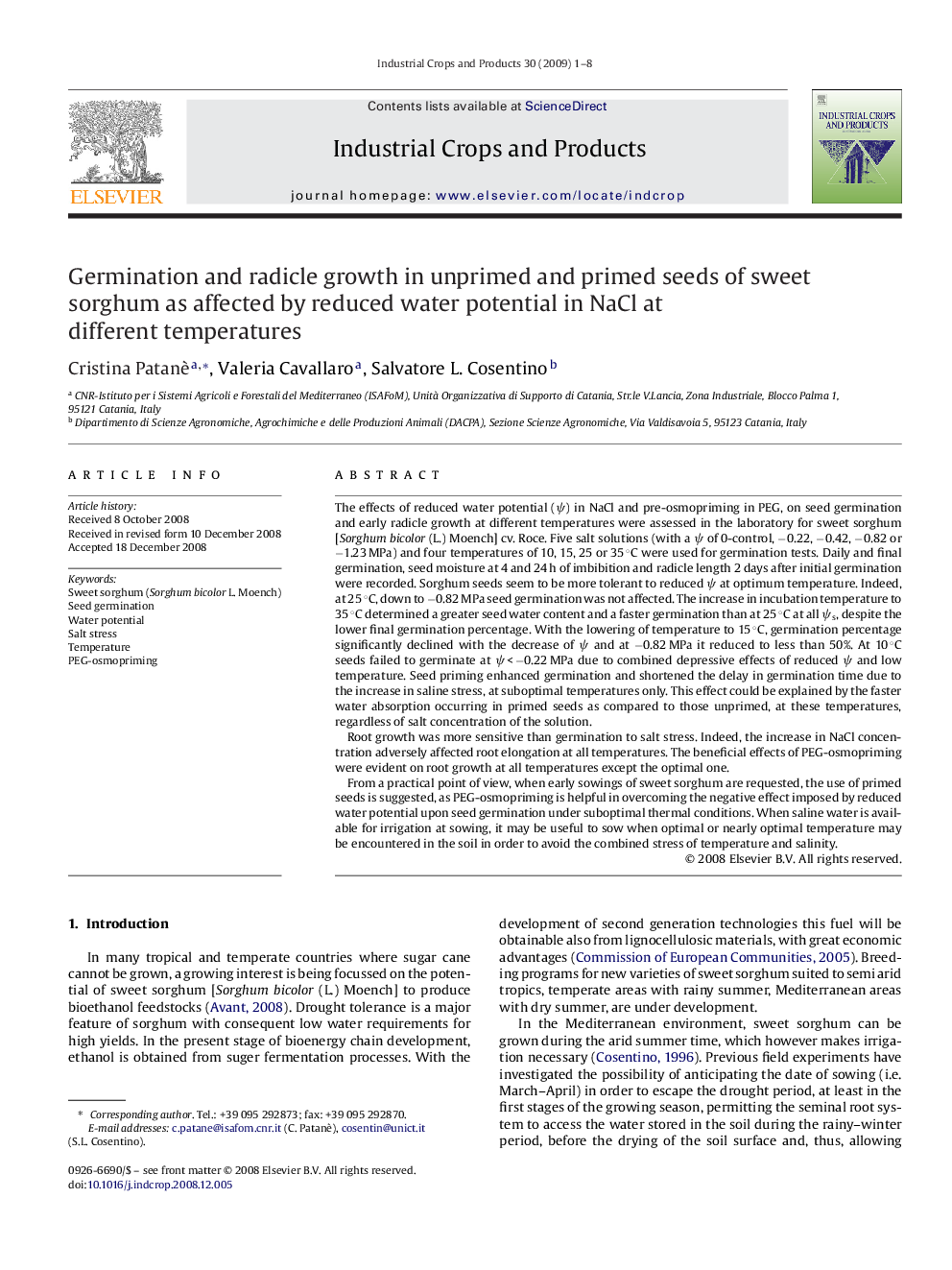| کد مقاله | کد نشریه | سال انتشار | مقاله انگلیسی | نسخه تمام متن |
|---|---|---|---|---|
| 4514920 | 1322224 | 2009 | 8 صفحه PDF | دانلود رایگان |

The effects of reduced water potential (ψ) in NaCl and pre-osmopriming in PEG, on seed germination and early radicle growth at different temperatures were assessed in the laboratory for sweet sorghum [Sorghum bicolor (L.) Moench] cv. Roce. Five salt solutions (with a ψ of 0-control, −0.22, −0.42, −0.82 or −1.23 MPa) and four temperatures of 10, 15, 25 or 35 °C were used for germination tests. Daily and final germination, seed moisture at 4 and 24 h of imbibition and radicle length 2 days after initial germination were recorded. Sorghum seeds seem to be more tolerant to reduced ψ at optimum temperature. Indeed, at 25 °C, down to −0.82 MPa seed germination was not affected. The increase in incubation temperature to 35 °C determined a greater seed water content and a faster germination than at 25 °C at all ψs, despite the lower final germination percentage. With the lowering of temperature to 15 °C, germination percentage significantly declined with the decrease of ψ and at −0.82 MPa it reduced to less than 50%. At 10 °C seeds failed to germinate at ψ < −0.22 MPa due to combined depressive effects of reduced ψ and low temperature. Seed priming enhanced germination and shortened the delay in germination time due to the increase in saline stress, at suboptimal temperatures only. This effect could be explained by the faster water absorption occurring in primed seeds as compared to those unprimed, at these temperatures, regardless of salt concentration of the solution.Root growth was more sensitive than germination to salt stress. Indeed, the increase in NaCl concentration adversely affected root elongation at all temperatures. The beneficial effects of PEG-osmopriming were evident on root growth at all temperatures except the optimal one.From a practical point of view, when early sowings of sweet sorghum are requested, the use of primed seeds is suggested, as PEG-osmopriming is helpful in overcoming the negative effect imposed by reduced water potential upon seed germination under suboptimal thermal conditions. When saline water is available for irrigation at sowing, it may be useful to sow when optimal or nearly optimal temperature may be encountered in the soil in order to avoid the combined stress of temperature and salinity.
Journal: Industrial Crops and Products - Volume 30, Issue 1, July 2009, Pages 1–8